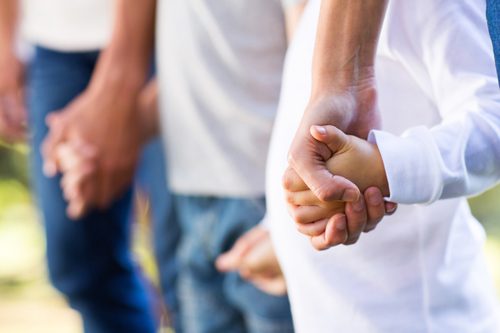 Addiction is a family disease. When a loved one suffers with addiction, the family members will be affected.
Addiction is a family disease. When a loved one suffers with addiction, the family members will be affected.
In addiction, family members learn to play roles in order to survive and/or avoid the chaos brought on by their loved one’s disease. No one does this on purpose or realizes they are acting out a role. It just happens. Three common family roles in addiction are Enabler, Hero, and Lost Child.
The first popular family role is the Enabler. This cast member has all good intentions of helping the addicted loved one but continues to protect them in a variety of ways. They may spend a lot of time cleaning up the person’s messes, apologizing or making excuses for their behavior, and doing little things the person could and should be doing for themselves. Enablers do their best to keep everyone in the family happy. When this happens, bad behavior can continue without any consequences.
The second popular role is that of the Hero. This person tends to play the role of one who continues to outdo and overdo and excel in all aspects of their lives. This behavior tends to take the focus off the addicted loved one and onto the hero’s achievements. This hero role is typically held by the oldest child. This is the one whose grades are extremely high, who excels in sports or outside endeavors, and who exceeds responsibilities. The hero hopes that their behavior will compensate for the addicted person’s behavior and thus bring esteem to the family.
The third popular role is the Lost Child. The person who adopt this role finds solace in keeping a low profile and doing their best to not make problems. By keeping to themselves, the lost child learns not to ask too many questions, withdraws emotionally and physically from the family, and is considered low-maintenance. By not ‘rocking the boat,’ they can keep everything at status quo. The consequence is that the Lost Child does not develop the ability to communicate emotions or feelings.
While these family roles in addiction are popular and can seem almost natural, they are incredibly harmful to everyone involved and serve only to prolong the loved one’s addiction. How? By preventing the addicted person from taking responsibility for their lives, family members ensure that their loved one will never change. Who then suffers? Everyone.
Contact us today if you or your loved one is ready to reach out for help. We can start you on the road to recovery.

 Addiction is a family disease. When a loved one suffers with addiction, the family members will be affected.
Addiction is a family disease. When a loved one suffers with addiction, the family members will be affected.